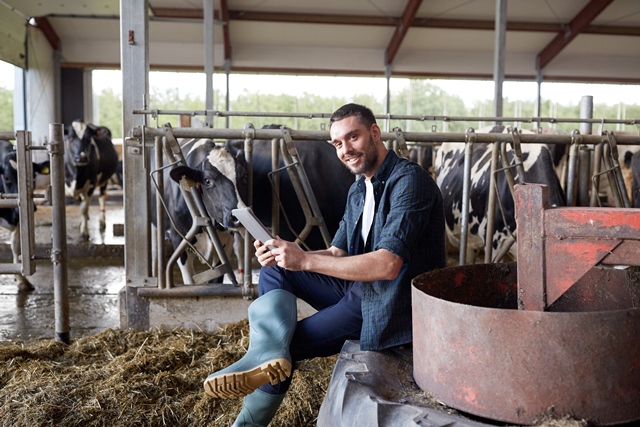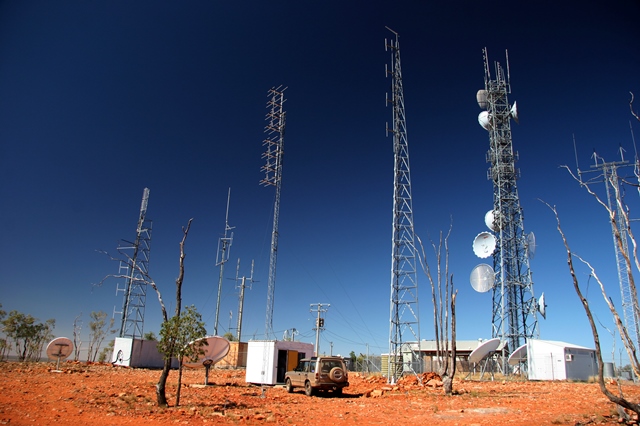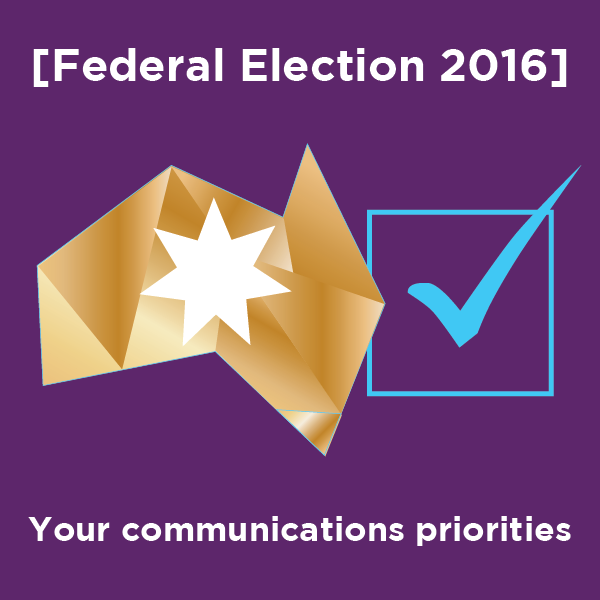Our focus
- Details
- News
 In April, some members of the Regional, Rural and Remote Communications Coalition had their say on issues relating to the NBN rollout at public hearings in front of the Joint Parliamentary Standing Committee on the National Broadband Network.
In April, some members of the Regional, Rural and Remote Communications Coalition had their say on issues relating to the NBN rollout at public hearings in front of the Joint Parliamentary Standing Committee on the National Broadband Network.
This blog summarises the issues highlighted by AgForce Queensland, Better Internet for Rural, Regional & Remote Australia (BIRRR) and ACCAN at these hearings. Transcripts for the hearings and submissions to the Committee are available online.
Read more: Bush Coalition members outline NBN concerns
Write comment (1 Comment)- Details
- News
The CEOs of ACCAN, the South Australian Council of Social Services (SACOSS), and Financial Counsellors Australia (FCA) have sent a joint letter to the major political parties calling for an urgent review of the Centrelink Telephone Allowance (CTA). See below for a link to download the letter that was sent to the political parties.
The letter is accompanied by a preliminary data briefing report by ACCAN and SACOSS on the adequacy of the CTA, based on a survey of 523 low-income Australians. The survey found that many low-income consumers are struggling to pay their telecommunications costs, and that the CTA is not adequate to alleviate this financial difficulty. As a result, the report recommends that all parties and candidates in the Federal Election:
Read more: Calling for a review of the Centrelink Telephone Allowance
Write comment (0 Comments)- Details
- News
ACCAN has written to the major political parties (the Liberal Party, the Australian Labor Party, the Nationals and Australian Greens) to raise awareness of the need for politicians and government agencies to ensure that all of their online video content is accurately captioned. See below for a copy of this letter.
YouTube has a function that auto-captions videos uploaded to the site, but these captions are often inaccurate. Videos that are uploaded to Facebook often have no captions.
One in 6 Australians suffer from hearing loss; that’s 1 in 6 consumers who are not able to access online videos due to unreadable captions or a lack of captions. Access to information is especially important during the lead up to the 2016 Election. If videos are not properly captioned then many consumers will miss out on important information.
Read more: Online videos need to be properly captioned
Write comment (0 Comments)- Details
- News
 Recently ACCAN has heard increasing reports about fraudulent mobile number porting and identity theft.
Recently ACCAN has heard increasing reports about fraudulent mobile number porting and identity theft.
What is a mobile number porting scam?
Fraudulent mobile number porting happens when a scammer uses your personal details to port your mobile number from one provider to another. Scammers can get access to your personal details, such as your date of birth, phone number and address, via your social media profiles.
Read more: Fraudulent mobile number porting and identity theft
Write comment (78 Comments)- Details
- News
 Last year Queensland Remote Aboriginal Media (QRAM), in conjunction with ACCAN, released what is believed to be the first consumer resources produced in Indigenous languages.
Last year Queensland Remote Aboriginal Media (QRAM), in conjunction with ACCAN, released what is believed to be the first consumer resources produced in Indigenous languages.
Working with design agency, Gilimbaa, QRAM created a series of audio tracks with information on what you should think about before buying a mobile phone, how to keep internet and phone costs low, what people can do if they get a large or unexpected bill and more. The project also produced a series of colourful posters that cover the same issues.
Read more: Indigenous consumer education
Write comment (0 Comments)- Details
- News
 Amending the Broadcasting Services Act to introduce audio description on free-to-air TV is one of ACCAN’s 2016 communications consumer priorities. Introducing audio description on Australian TV would provide greater access for consumers who are blind or vision impaired. Currently there is no audio description on Australian free-to-air TV.
Amending the Broadcasting Services Act to introduce audio description on free-to-air TV is one of ACCAN’s 2016 communications consumer priorities. Introducing audio description on Australian TV would provide greater access for consumers who are blind or vision impaired. Currently there is no audio description on Australian free-to-air TV.
Audio description is additional verbal narration that describes visual elements shown on screen during pauses in dialogue. It can describe elements such as scenes, costumes and actions.
Read more: Update on audio description
Write comment (0 Comments)- Details
- News
 The cotton industry is an integral part of the Australian economy, worth more than $1.5 billion in export earnings for the 2015-16 season and employing on average 10,000 people.
The cotton industry is an integral part of the Australian economy, worth more than $1.5 billion in export earnings for the 2015-16 season and employing on average 10,000 people.
Cotton Australia, the peak industry body for Australia’s cotton industry, is one of ACCAN’s newest members. The organisation is also a member of the Regional, Rural and Remote Communications Coalition.
As a member of both ACCAN and the Coalition, Cotton Australia has highlighted telecommunications issues many cotton growers experience, including poor to no mobile service, unreliable internet services with speeds and data caps that often mean growers struggle to send an email, let alone capitalise on all the benefits of ‘smart’ agriculture.
Read more: Reliable telecommunications a necessity for Aussie cotton farmers
Write comment (0 Comments)- Details
- News
 March 15 is World Consumer Rights Day (WCRD). WCRD is an opportunity to promote the basic rights of all consumers, demanding that those rights are respected and protected, and a chance to protest against the market abuses and social injustices which undermine those rights.
March 15 is World Consumer Rights Day (WCRD). WCRD is an opportunity to promote the basic rights of all consumers, demanding that those rights are respected and protected, and a chance to protest against the market abuses and social injustices which undermine those rights.
The theme for WCRD 2017 is ‘Building a Digital World Consumers can Trust.’ To tie into this theme, this blog looks at where consumers can turn to when they need to make a complaint, get advice or report scams and cyberbullying.
Read more: Building a Digital World Consumers can Trust
Write comment (0 Comments)- Details
- News
 To find out more about the communications policies of the major political parties we have posed questions to them on these communications consumer priorities and other important issues. When the answers to our questions are available we will post them on this webpage. More information on communications consumer priorities is available on our Election webpage.
To find out more about the communications policies of the major political parties we have posed questions to them on these communications consumer priorities and other important issues. When the answers to our questions are available we will post them on this webpage. More information on communications consumer priorities is available on our Election webpage.
Read more: Federal Election questions to major parties
Write comment (0 Comments)- Details
- News
 This week, the Coalition and Labor both announced that if elected they would commit extra funding to the Mobile Black Spot Programme. The announcement that an extra $60 million in funding will be allocated to the Programme is welcomed by ACCAN.
This week, the Coalition and Labor both announced that if elected they would commit extra funding to the Mobile Black Spot Programme. The announcement that an extra $60 million in funding will be allocated to the Programme is welcomed by ACCAN.
Mobile coverage is a key issue for consumers, particularly those who live in regional, rural, and remote areas. This is clear from the more than 10,600 mobile black spots identified in the Programme so far. Improving mobile coverage is one of ACCAN's ongoing key work priorities.
Read more: Extra funding for Mobile Black Spot Programme
Write comment (0 Comments)- Details
- News
 A recent ACCAN survey of 100 small businesses found that 96 of the respondents had experienced at least one issue with their telecommunications services. With many small businesses relying on these services to operate, this is a concerning figure. When services don’t deliver, this can mean lost profits and productivity for small businesses.
A recent ACCAN survey of 100 small businesses found that 96 of the respondents had experienced at least one issue with their telecommunications services. With many small businesses relying on these services to operate, this is a concerning figure. When services don’t deliver, this can mean lost profits and productivity for small businesses.
The top issues experienced by the respondents were issues with: internet speeds, internet congestion during peak times, costs and outages. The most prevalent issue was slow data speed, with 73 respondents reporting this problem.
Read more: What telco issues are small businesses experiencing?
Write comment (0 Comments)- Details
- News
 This is part three in our series of blogs looking at issues highlighted by ACCAN stakeholders at public hearings for the Productivity Commission’s Inquiry on the Universal Service Obligation (USO).
This is part three in our series of blogs looking at issues highlighted by ACCAN stakeholders at public hearings for the Productivity Commission’s Inquiry on the Universal Service Obligation (USO).
This post looks at affordability concerns highlighted by the South Australian Council of Social Service (SACOSS) and issues raised by ACCAN member, Bruce Bebbington, at the public hearing held in Perth.
Read more: Having a say on the USO (part three)
Write comment (0 Comments)